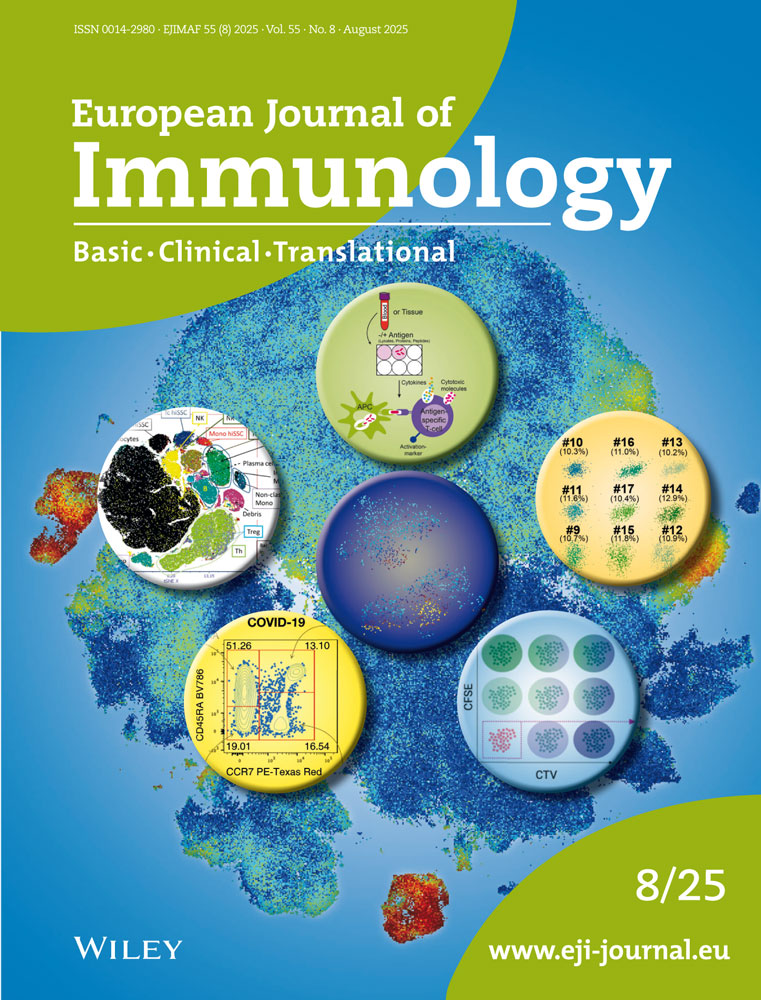LFA-3 co-stimulates cytokine secretion by cytotoxic T lymphocytes by providing a TCR-independent activation signal
Abstract
T cell activation is known to depend not only on efficient antigen recognition and subsequent signaling through TCR, but also on interactions involving multiple adhesion and accessory molecules such as CD28/B7, LFA-1/ICAM-1 and LFA-3/CD2. The present study dissects the role of LFA-3/CD2 interactions in the activation of melanoma-specific CD8+ T cell clones. To this end we analyzed the influence of LFA-3 density on melanoma cells on lysis and cytokine production (TNF, IL-2, IFN-γ) by T cells following activation by various amounts of antigenic peptides. Our results indicate that increasing LFA-3 density on melanoma cells variably affects their lysis susceptibility, but systematically and considerably enhances cytokine production by melanoma-specific cytotoxic T lymphocyte (CTL) clones. At any stimulatory antigen density, LFA-3 increased the fraction of responding cells and/or cytokine amounts produced by individual cells, without affecting TCR down-regulation. These results show that CD2 engagement increases cytokine gene activation essentially by providing to T cells a TCR-independent co-activation signal. From a practical point of view, our data demonstrate that the level of LFA-3 expressed on tumors critically affects cytokine production by specific CTL and thus the efficiency of specific immune reactions mediated by these cells.




